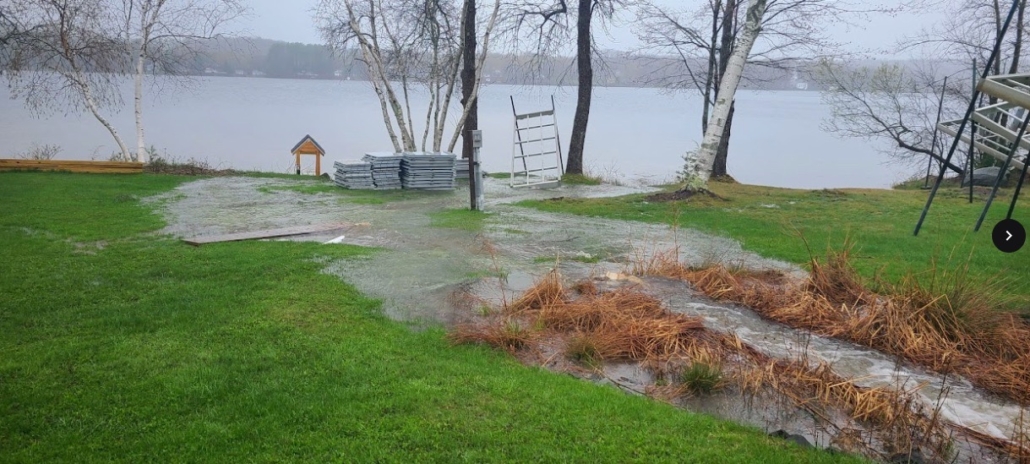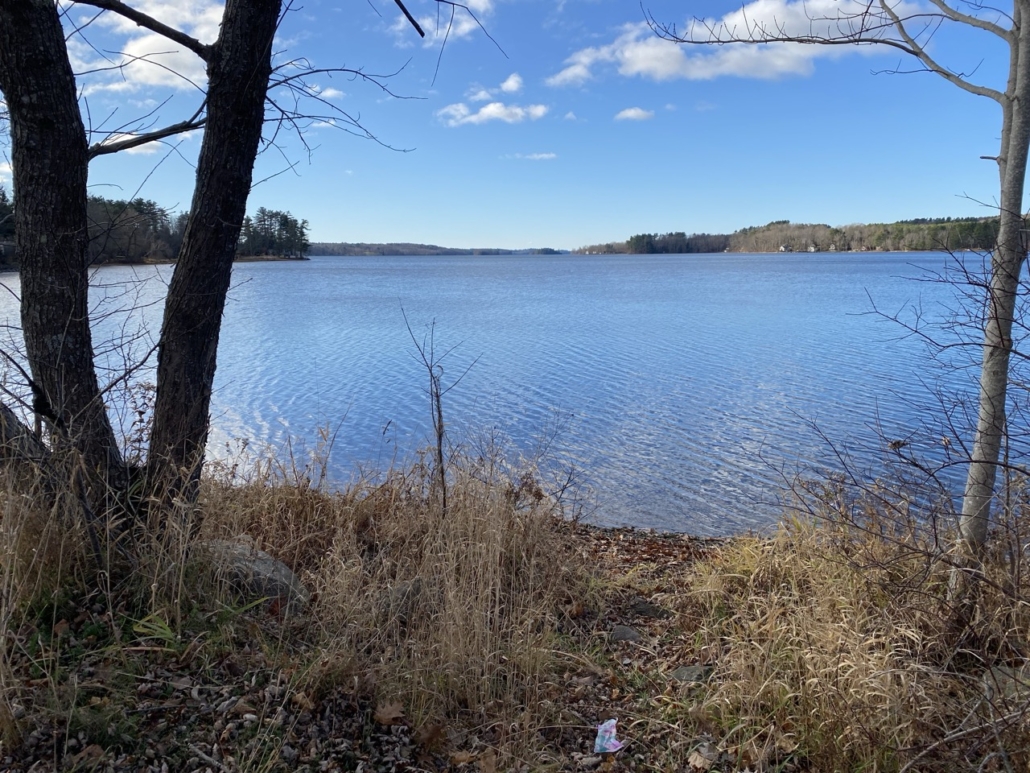Lake Life Today: While planning for the future

FALL SCENE: Susan Thiem, of Texas, a summer resident on China Lake, took this photo prior to her departure this past fall.
submitted by Elaine Philbrick
Lake Life Today is a series of articles that we hope will inspire you to see how, by taking just a few steps, you can make a difference and help preserve the quality of water in our lakes for future generations.
These articles have been collected and organized by LakeSmart Director Elaine Philbrook, a member of China Region Lakes Alliance (aka “the Alliance”) serving China Lake, Webber Pond, Three Mile Pond, and Three-Cornered Pond. The Alliance would like to thank our partners at Maine Lakes and Lakes Environmental Association (LEA) for information to support this article.
- Be LakeSmart
- Lakes Environmental Association
- LakeSmart Tip: Spring Cleaning
As you open your camp this spring, consider the following suggestions for protecting your lake.
Cleaning Up Yard Debris
Pine needles, leaves, and other undisturbed vegetative material (small, downed branches and twigs) can help supplement your property’s “duff layer” at the shoreline. This is a layer of decaying leaf and undisturbed vegetative material that creates a buffer-like area to promote your landscape’s ability to infiltrate stormwater. Promoting vegetation at the shoreline’s edge will also protect the riparian zone for wildlife habitat on your shorefront property. It is advisable to retain as much of this natural duff layer as possible while still being able to enjoy your property.
- Pine needles and leaves should not be raked up except to provide a safety barrier around your fire pit or to maintain your (hopefully minimal) lawn. Regarding lawns generally: Please avoid importing “fancy aesthetics” to your lakeside, such as miniature or dwarf fruit trees. Instead go with more natural shoreline plants that would help stabilize your buffer. It is Maine’s lakeside natural environment that we all love. Go to Shoreline Landscaping for Lake Protection, Maine Department of Environmental Protection for more info.
- Downed branches and other debris should only be removed in areas where you recreate or walk.
- Leaving the natural duff layer is a critical part of the forest ecosystem and should be left intact outside of footpaths.
- Also, try to avoid using commercial fertilizers that contain concentrations of phosphorous (i.e., a nutrient that contributes to algae blooms in our lakes).
Activating Your Septic Tank
Septic tanks activate after the winter naturally. No additives are needed to get your septic tank’s bacterial process started in the spring. Rid-X and similar bacterial enzyme additives interfere with natural tank bacterial action, often causing accelerated breakdown of solid and turning sludge into a slurry which can then enter and plug up your leach field. Do not waste your money on products that don’t work and can harm your septic system!
Maintaining Water Diverters
Existing open top “box” culverts and/or so-called “rubber razors blades” installed along your camp road need periodic inspection and cleaning. Runoff into these diverters carries silt which builds up and can reduce or eliminate the diverter’s capacity to function. In open top culverts, remove the silt which settles. Similarly, clean up the silt which builds along the uphill edge of any rubber razor blades, and dredge the outlet edge of all diverters to remove the silt that has built up there.
At the Water’s Edge
- Inspect your dock entrance to ensure it is not allowing runoff into the lake.
- Assess whether there is any undercutting of the lake bank from waves crashing into your shoreline.
If you have any questions about what you can do to ensure the integrity of your valued lake or if you would like a free LakeSmart evaluation you can reach Elaine Philbrook by email at chinalakesmart@gmail.com and follow-up to read the next Townline newspaper.
Live lightly on the land for the sake of the lake (LakeSmart).
Responsible journalism is hard work!
It is also expensive!
If you enjoy reading The Town Line and the good news we bring you each week, would you consider a donation to help us continue the work we’re doing?
The Town Line is a 501(c)(3) nonprofit private foundation, and all donations are tax deductible under the Internal Revenue Service code.
To help, please visit our online donation page or mail a check payable to The Town Line, PO Box 89, South China, ME 04358. Your contribution is appreciated!





Leave a Reply
Want to join the discussion?Feel free to contribute!